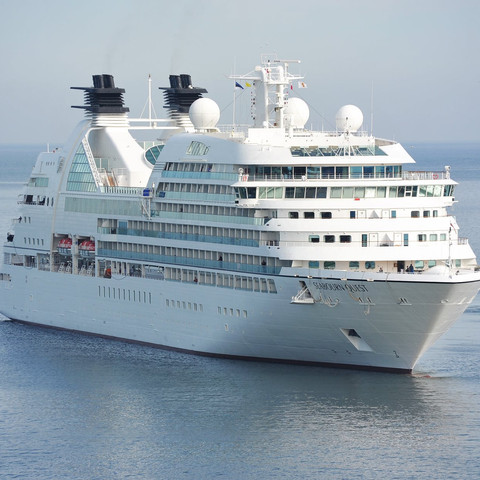The travel industry, including cruising, remains ever changing with global advice changing day by day, and region by region. The top priority of the cruising industry is effective health & safety protocols, whilst ensuring cruises remain an exciting holiday option.
As part of Travel Weekly’s Future of Travel Week Lucy Huxley, editor in chief spoke to Arnold Donald, chief executive of Carnival Corporation, Ellen Bettridge, chief executive of Uniworld, Ben Bouldin, vice-president of EMEA for Royal Caribbean International, Andy Harmer, director of CLIA UK and Ireland, and Lucia Rowe, managing director of A-Rosa, to discuss the future of cruising amidst COVID-19. This is what we have taken away from the conversation.
It has proven easier to restart river cruises as ocean cruises visit multiple countries with rules and regulations varying from one port of call to the next. This has affected the demographic of those booking river cruises. A-Rosa is reporting that 70% of booked passengers for late 2020 and 2021 sailings are previous ocean cruise passengers.
A number of cruise lines have worked collaboratively with CLIA throughout COVID. They have recognized there should be no competition with regards to health & safety protocols. Instead, there should be an industry-wide procedure to convince the FCO to “bless the cruise industry.”
Cruise lines are focused on (re)instating confidence with travel agents and consumers. They aim to achieve this through their health & safety protocols including social distancing on and off board, the wearing of face masks, the spraying of the vessels with microchemical substances, hand sanitizing stations, testing before embarkment as well as testing facilities onboard.
Dining and entertainment experiences will remain, but they will be altered due to capacity. This varies across cruise lines but it may include different groups having different dining times and venues, and the ability to watch live entertainment on alternative nights (and be able to watch it live-streamed on nights when it cannot be attended in person).
Cruise lines are also tweaking their product by pushing no-fly options, whereby guests have the option to get to cruise terminals by car, coach or train. Therefore, those who are apprehensive about air travel can still access cruises.
The easiest market to tackle remains past cruisers. These are loyal customers and many of them have already expressed eagerness to return on board.
The cruise industry is optimistic about the future – 2021 bookings are healthy and indicating that there is a strong demand for cruising to return. The first quarter remains light, but Q2, Q3, and Q4 are strong. Re-booking due to COVID-19 contribute to these numbers, but companies are also reporting a high number of new bookings.
Future plans need to focus on strong and clear communication with guests. Guests need to be informed about the varying regional advice plans and the itineraries need to remain flexible and adaptable. Cruise ships are focusing on compliance with the rules & regulations in place, and thus effective communication with guests needs to happen to ensure these ever changing rules & regulations are understood and followed by all passengers.
There is not doubt that we are in a trying time for the whole travel industry, but the cruise industry remains optimistic and confident. Indeed, bookings for 2021 provide the industry with confidence that the demand remains but for now “weathering the storm” is the name of the game.
Please, leave you comments below.








Comments